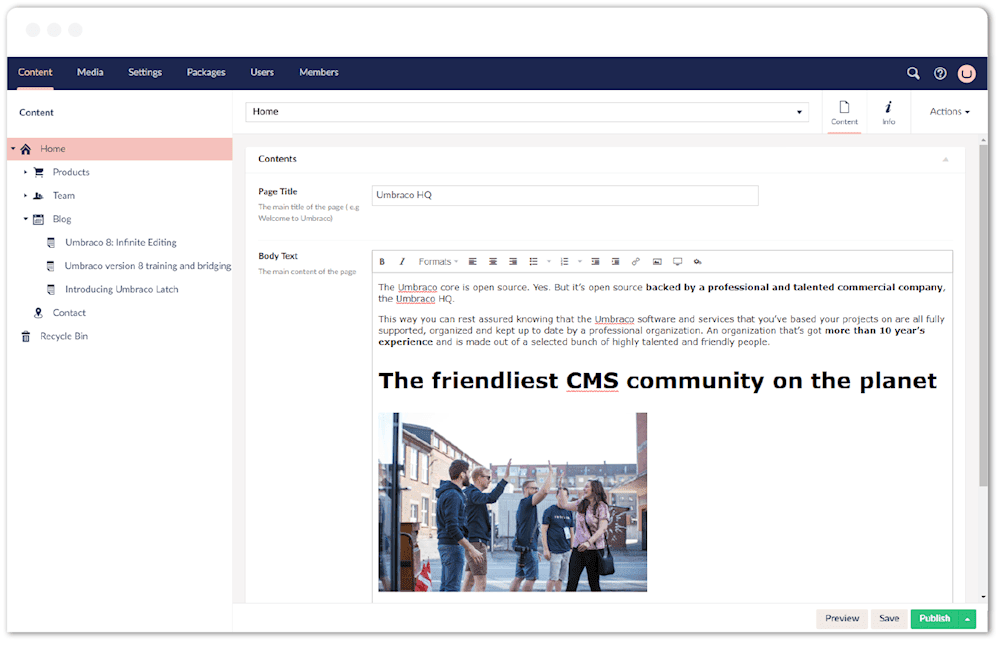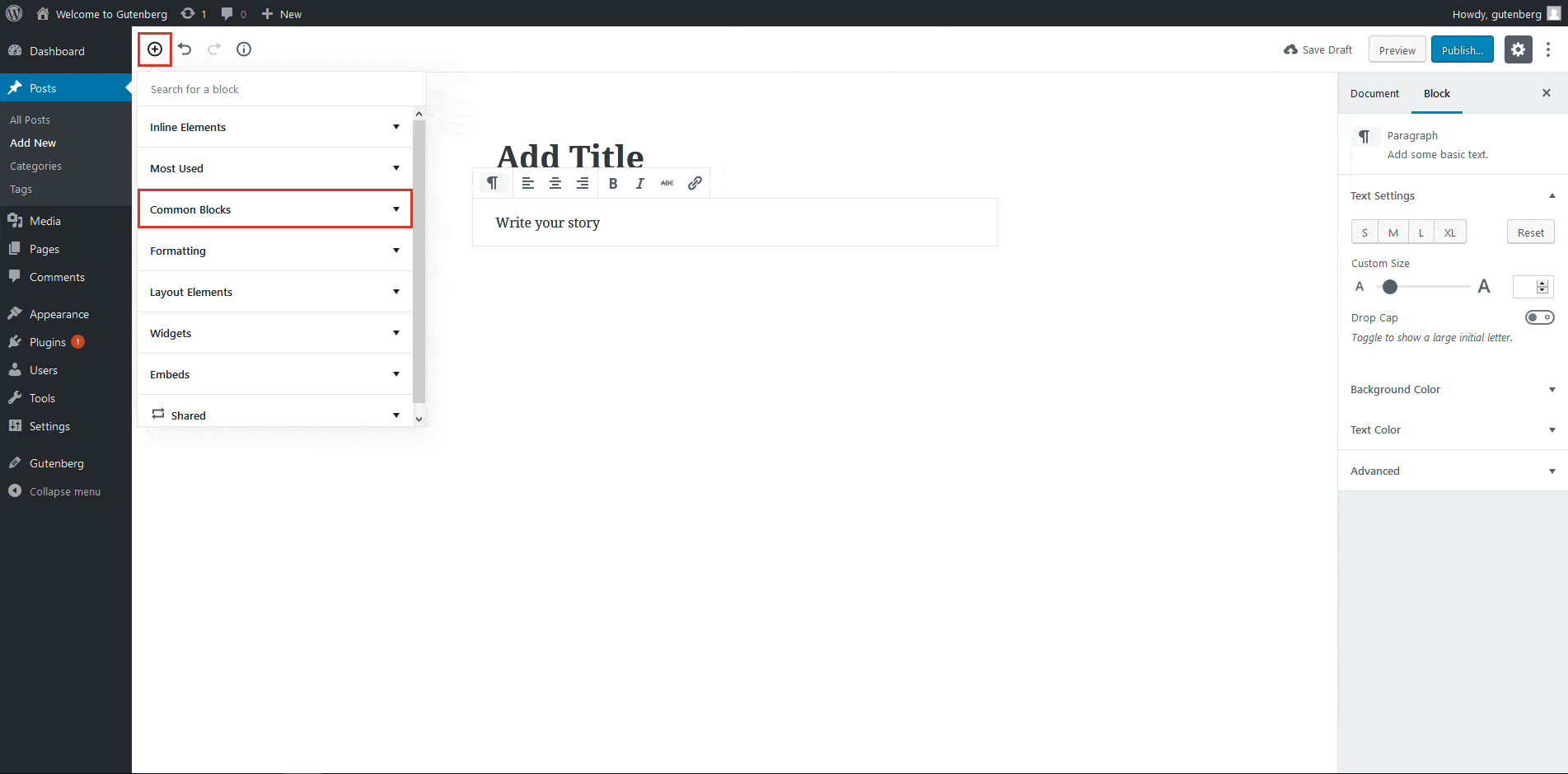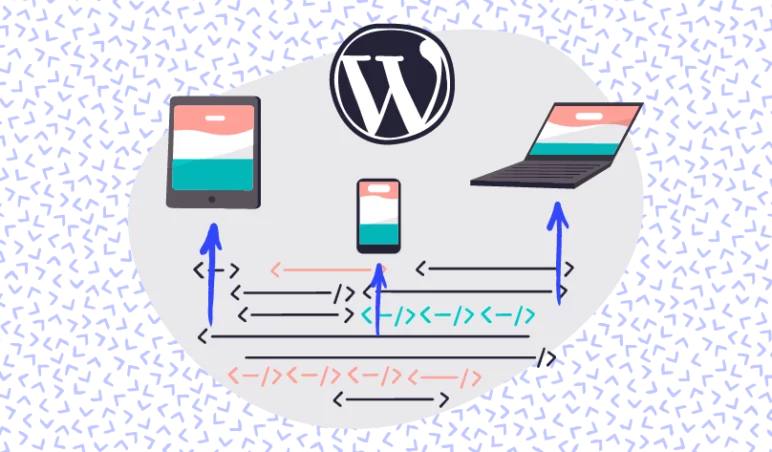WordPress and Umbraco certainly have similarities, but which one is better for you? Here, we break down the advantages and disadvantages of Umbraco and WordPress in terms of their software and available services.
Umbraco is one of the oldest open source content management systems available, having launched in the year 2000. The C# platform is developed on a Microsoft-based infrastructure and is the most popular platform that uses this framework.
Umbraco has carved out a niche as a fully-flexible and customisable content management platform, acting as a blank canvas for developers to play with.
WordPress started its life in 2003 as a community-based blogging platform before evolving into one of the internet’s most popular content management platforms. It became instantly popular as its growth aimed to put the power in the hands of the everyday user, making websites available and easy to use for everyone.
WordPress progressed from humble beginnings to the most used CMS platform in the world, utilised by small businesses and major brands alike.
So let’s get stuck in and look at which content platform is best for you… We’ve broken things down into specific categories and included a handy summary of advantages and disadvantages for you at the end.
TLDR; here’s a summary if you don’t have time to read the whole article
Spoiler alert: WordPress wins for most use cases!
The Key Difference Between WordPress and Umbraco
Broadly speaking, the key demographics of WordPress and Umbraco users are a little different. Much of the WordPress user base consists of bloggers and marketers looking for a versatile content management system, whereas the Umbraco user base is almost exclusively made up of web developers.
The differences in demographics are a result of the different goals each platform has. WordPress has endeavoured to be a platform for everyone, whereas Umbraco requires a wealth of technical and web dev knowledge to make the most of.
With WordPress, hiring an external web developer or expert is needed for some things, but for Umbraco, it is mandatory for almost everything people want to do on the platform.
Largely, a customer’s decision relies on what they’re trying to achieve. However, for those neck-and-neck decisions, we’ve broken down the advantages and disadvantages of WordPress and Umbraco.
Umbraco vs WordPress: Codebase and Developers
If you have a preference for a type of codebase and development framework, then this could be your best distinguishing feature between the Umbraco and WordPress platforms.
Umbraco works from an open source server-side web-application framework called ASP.NET. This framework is home to a specific set of developers who have likely used the codebase since they learned to code. It was made available by Microsoft in 2002 and as a framework accounts for roughly 13% of the top 1 million websites on the internet.
WordPress by contrast uses an entirely different framework, PHP. It is a general-purpose scripting language that is especially suited to web development and is a completely open source framework. It was originally developed by a chap called Rasmus Lerdorf in 1994 and currently accounts for around 39% of the world’s top 1 million websites.
Framework usage stats according to BuiltWith.
The advantage in the codebase of both Umbraco and WordPress is that they’re completely free and open source. This is a massive bonus when considering either platform.
Disadvantages come when seeking developers to help build, maintain or fix your website platform. With PHP having a market share three times the amount of ASP.NET, it’s not too hard to imagine how much easier it is to find a developer or digital agency to help achieve your goals with WordPress compared to Umbraco. This is something well worth considering.
Umbraco vs WordPress: Content Editors and Ease of Use
The whole point of this article is to help you choose which content platform is best for you, so let’s take a look at just how usable both platforms are when compared.
The finished product from both platforms is one that is great for content editors, they’re both excellent content management tools with little ongoing tech knowledge required to create content.
Where this really comes into its own is in flexible content editing. No more boring text pages! Both Umbraco and WordPress have grown and evolved into amazing tools to help build your content and pages in a way that makes sense and is natural, putting the power of managing content in the hands of the marketing manager, copywriter or website product owner. This is a massive tick in the box for both platforms.
Umbraco comes into its own when a lot of time and love has been poured into it. Fresh out of the box, Umbraco makes it evident that it was made for developers first, not your average CMS user. It intentionally lacks a lot of the key functionality expected with a CMS in anticipation that you’ll spend the time and money to develop it yourself.
WordPress, by contrast, is a different choice when it comes to ease-of-use and accessibility. Most of the options that you expect to handle the day-to-day dealings and personality of your website are already available in the core software or with very little additional effort. This makes it much easier to get the basics done in WordPress, lowering the barrier to entry for most brands and letting the developer take the reins to customise it to your requirements.
Both platforms can be a powerful tool for marketers and developers alike and having Umbraco’s blank canvas to play with may entice some users. However, for most, an accessible CMS that has depth will trump one that feels obtuse.
A quick look at Umbraco’s user interface
The Umbraco experience for a content manager is a little traditional like a Windows file manager but is still quite fresh compared to other more cumbersome platforms. It features a flexible content editor and is fairly straightforward to use, exactly what you want to hear!

A quick look at the WordPress user interface
By contrast the WordPress experience is a little more up-to-date and focussed on both accessibility and usability. The newest version of the content editor, aptly named Gutenberg, is designed to mimic the content you expect to see on the front-end when editing, producing a more realistic sense of what your final version looks like. Again this platform features a flexible content editor, one that you’ll love using day-to-day.

Umbraco vs WordPress: SEO
WordPress is still the go-to option for those who want strong SEO; Google simply loves WordPress and its underlying structure. Umbraco doesn’t lag significantly behind. Though, if your business relies on good SEO – and let’s be honest, what business doesn’t – then WordPress is what you should opt for.
The Yoast plugin does an excellent job of ensuring you hit best practices, but the SEO appeal of WordPress goes deeper than that. WordPress also features tags, which don’t appear on Umbraco without plugin use or some extra coding.
With Umbraco, you’re going to have to put a bit of work in to get your SEO running. WordPress gives you everything you need from the get-go.
WordPress allows novices to get up to speed with SEO faster. From mass-edits of metadata to an optimisable permalink structure, WordPress beats Umbraco on SEO through accessibility and effectiveness.
On the whole, starting with a blank slate for SEO can be appealing to marketers looking to take advantage of the Umbraco platform, especially if you’re looking for the finest control over your structure. However it’s WordPress that carries the reputation for its relationship and effectiveness with Google, and having a proven structure can be a huge advantage, a good starting point from which to build.
Umbraco vs WordPress: Growth and Expandability
Neither platform was developed with the idea of standing still, which you’ll probably be pleased to hear. Both are aimed at achieving growth and being able to be expanded to suit the needs of the organisations using them.
Critically both Umbraco and WordPress have API layers built-in, which means they’re both integration-ready and this allows you to expand your reach and even your efficiency using third-party tools. Efficiency? This can look like automatic data transfer to your CRM or accounts software, for example. Tasks that would otherwise take a whole lot of manual time.
Umbraco is a very scalable CMS platform and is particularly great for managing large numbers of pages (particularly from a content administrator perspective). As mentioned it’s also very developer friendly, which allows for a lot of freedom when developing integrations with third party tools from scratch. As a platform it is very extensible.
WordPress is an equally scalable platform and is connected to a wealth of resources. It was built to grow, so is the easiest platform to integrate with and has the most brands/products integrated with it already. It’s hard to think of popular marketing tools that haven’t considered how they work with WordPress, meaning there are a heap of plugins out there that can handle complex functionality with very little effort. There’s also the space for developers to build their own integrations, which can often be a more streamlined approach than popular consumer-facing alternatives.
Both platforms have equal disadvantages when it comes to expanding them as well…
WordPress makes it easy for site owners to install plugins which can be great, but too many plugins, irregular updates and badly specified hosting solutions can cause a site to be slow and potentially not secure. Working with a specialist developer or agency is one good way to get around this challenge.
Umbraco has a lower barrier to entry and a lot more work needs to be done to reach a basic level. This means that developing new functionality and integrations can take a lot longer when compared to its competition. Your way around this can only be to have more patience and increase your development budgets to get the job done.
Umbraco vs WordPress: Community
It wouldn’t feel right to spend time comparing both platforms without mentioning their amazing communities. Since both CMS tools are open source, they rely on a passionate community of people to build and support both, with regular Meetups happening across the world.
Since the fields of tech, development and design can be lonely work with a lot of remote working involved, it’s great that both platforms have a strong community to stay connected with. This also harbours a lot of additional learning and growth opportunities for both the platforms and the people using them.
At the time of writing this article (in 2020) the Umbraco community had 221,745 active members (according to the Umbraco website). The number of WordPress users attending Meetups around the world was 511,000 (according to CodeinWP).
Umbraco vs WordPress: Security
As WordPress is the biggest CMS in the world, it has a big target on its back. Hackers see the platform as an exciting prospect to unlock, meaning it sees a greater volume of attacks than your average CMS. When you factor in the security holes left by poorly-implemented code, WordPress is a slightly higher security risk than certain competitors. However, attacks are no more common in proportion to platform usage than its competitors.
Is Umbraco more secure than WordPress out of the box? The short answer is yes, but that’s not where the consideration of more or less secure should end. Both platforms are at the mercy of the developer using them and how well maintained they are in the long term.
Umbraco is built on Microsoft’s .NET platform, so it utilises its Code Access Security (CAS). In conjunction with CAS, Umbraco uses identity-based security, meaning it is very secure compared to most CMS platforms. This can be really handy, but can also give developers the temptation to be lazy, knowing they have a safety net in the platform resulting in a lack of security in itself.
While Umbraco is more secure out of the box when compared with WordPress, the community-built open source software relies on being implemented by developers who know how to build securely. This means choosing the right hosting platform and following the WordPress coding standards. Doing this will land you in a position that is as secure as Umbraco’s solution. Certain hosts take advantage of Global Edge Security (GES), a high-performance advanced security solution with DDoS protection and a Web Application Firewall (WAF), designed to keep your site secure while delivering a faster experience for your customers.
So what does all of this actually mean? In other words, the beauty is in the eye of the beholder. Or, the security is in the hands of the developer. Both platforms can be equally secure when implemented in the right way.
It’s worth mentioning that hiring an expert agency, like Illustrate Digital, can ensure you are using the most up-to-date version of WordPress, as well as ensuring your plugins are safe and secure in the long term.
Umbraco vs WordPress: Hosting and Performance
It’s worth quickly touching on the hosting and performance elements of both CMS platforms, as it’s important to understand how they both stack up once they’ve been built and made live to your end-users.
Unfortunately many Umbraco sites are reported to be slow from both content editing and front-end user perspectives. This can be especially disappointing since a lot more development time will likely have been spent bespoking an Umbraco site before it launches. You may land with a more customised outcome, but it’s possible that the results can be of slower performance.
WordPress can be very cost effective to setup and run, with PHP development and hosting costs stacking up more cost-effective than their ASP.NET counterpart. However it’s also worth mentioning that since WordPress has been made a lot more usable, it’s easy to think that ‘anyone’ can set it up to run well and take a DIY approach. Professional input is extremely valuable here.
For both platforms it’s important to get the hosting element right. Specialist hosting providers will always trump more basic ones, so don’t be tempted by ‘cheap’ when compared with high performance. After all, it matters to your end-users and how they experience your product.
Umbraco vs WordPress: Licensing
You may (or may not be) aware that both Umbraco and WordPress have open source and cloud versions available. This article is all based on the open source versions of the software and this is what we would recommend using for businesses that are serious about taking control of their marketing.
Open source licenses allow you to extend and modify the platforms to your heart’s content, whilst preventing you from reselling any of the platforms’ core functionality as your own (not the same as selling any extensions you may have created, for example).
By contrast the cloud versions of both platforms are commercially-driven entities and can end up being pretty restrictive. Since they’re cloud based they’re also not free and whilst they still utilise the core open source software, using the cloud-based version essentially removes the open source element of the product. These cloud versions are aimed at the more do-it-yourself approach to creating a website than the high-performance marketing tools we’ve been comparing so far.
For the free, open source version of Umbraco, visit here: https://umbraco.com/products/umbraco-cms/
The free, open source version of WordPress has its own separate website, here: https://wordpress.org/
Umbraco vs WordPress: Pros and Cons
Mainly, the decision to opt for Umbraco or WordPress depends on who you are. For the vast majority of people and businesses, WordPress comes out on top, but if you happen to be a web developer and get a kick out of the extra effort required, then you may sway Umbraco’s way.
Umbraco is a system suitable for those who want to have control over every facet of their CMS (at the expense of some usability). WordPress offers a system that offers greater SEO benefits, better ease-of-use and blisteringly fast site speed.
Here’s a more linear comparison of both platforms to summarise…
Strengths of both Umbraco and WordPress
- Great for content editors (no tech required)
- Support for flexible content (no more boring text pages)
- Media libraries to help organising images/documents
- Open source / free
- API layers built-in
- Multisite compatible
- Very extendible
- SEO friendly
Advantages of WordPress
- Built on PHP and developers are easier to find, the system is built for nimble dev
- Very cost effective to setup and run (development and hosting are cheaper than .Net)
- Great for anything from small to enterprise sites, used by some of the biggest brands in the world to handle a lot of content
- Can be expanded using plugins if you desire, with a lot of additional support for integrations available
- It is built to grow, so is the easiest platform to integrate with and has the most brands/products integrated with it already (e.g. CRM systems, etc.)
- Well trusted and supported with broad network of people/experts who can help with trickier challenges (more easily available = less expensive)
- Powerful scheduling, rollback and audit trail functionality
Advantages of Umbraco
- Very scalable CMS platform which is great for managing large numbers of pages (particularly from a content administrator perspective)
- Open source but with commercial support (if/when needed)
- Powerful built in search engine (though can be built with WP using existing resources)
- Built-in advanced user permissions (no more than with WP when correct functionality is used)
- Powerful scheduling, rollback and audit trail functionality
Disadvantages of WordPress
- Can be used in the wrong way and oversimplified if you don’t know what you’re doing (developer wise)
- Too many plugins and badly spec’d hosting will cause a site to be slow
- Can be vulnerable to hacks if not implemented properly (but same with any other platform, WP is just more widely known)
- Because a lot of people use it, credible agencies can be harder to find since everyone is professing to be good at it – same with hosting
Disadvantages of Umbraco
- Umbraco is in decline and has an equal market share of high traffic sites with WP, independent research here: https://w3techs.com/technologies/details/cm-umbraco/all/all
- If you prefer Microsoft platforms, it is based on ASP.Net platform (developers harder to find and dev can take longer)
- Not as good at integrating, everything must be custom coded and so dev time is spent more on back-end than user experience
- Many Umbraco sites are slow from both content editing and front-end user perspectives
Which CMS Do We Prefer?
We think WordPress is the best thing to happen to content management since, well, ever.
If you’ve read the above article and think WordPress is the right choice for you and would like to seek expert help to make your marketing or software goals reality, then as one of the leading WordPress agencies in Europe, we can help.
From website auditing to development, our WordPress Services can help you to achieve greatness in effective content management.

















